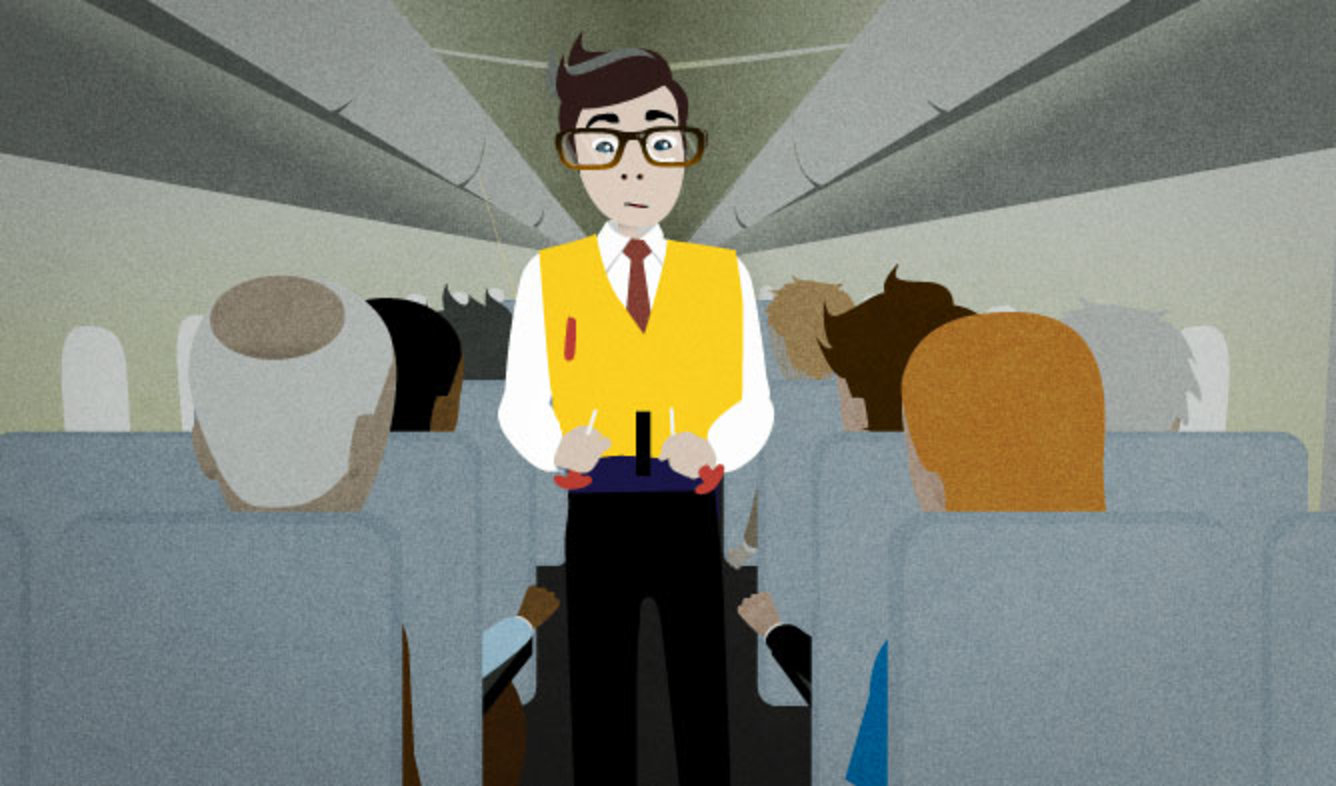“In the unlikely event of an emergency water landing, you may find a flotation device beneath your seat cushion.”
You're on an airplane that's about to take off. The flight attendant is making safety announcements. He tells what to do if the plane lands on the water.
In the unlikely event of an emergency water landing, you may find a flotation device beneath your seat cushion.
Want Video and Sound? Follow us on YouTube

In the event of (something), (do something)
This is a very formal expression that you mostly hear in instructions. It means "If ___ happens, do this."
Here are a few examples of how to use "in the event of ___":
In the event of fire, stay calm.
In the event of emergency, take stairs.
an unlikely (situation)
Something that is "unlikely" will probably not happen. These are some things that are "unlikely":
-
getting a job that you're not really qualified for
-
finding an earring that you dropped in a crowded place
-
winning the lottery
an emergency water landing
"An emergency water landing" is how airline employees describe an airplane crashing in the water or landing on the water. The word "crash" sounds horrible, so they avoid using it. "An emergency water landing" sounds more acceptable to passengers.
a flotation device
A "flotation device" is a formal word for something that helps you float in the water.
A "personal flotation device" can also be called by other names, including "life jacket". It's a vest which you wear around the water to help you to float if you fall in.
Another type of "flotation device" is a "lifesaver", which is a ring with a hole in the middle that you can throw to someone who's drowning in the water.
beneath (something)
"Beneath" is a more formal way of saying "under".
For example, if you're answering a lawyer's question in a trial, you might use "beneath" instead of "under":
Yes, that's correct. The apartment beneath us was vacant.
your seat cushion
A "cushion" is kind of like a pillow, but a little harder. Many seats have cushions on the bottom, where you sit.
